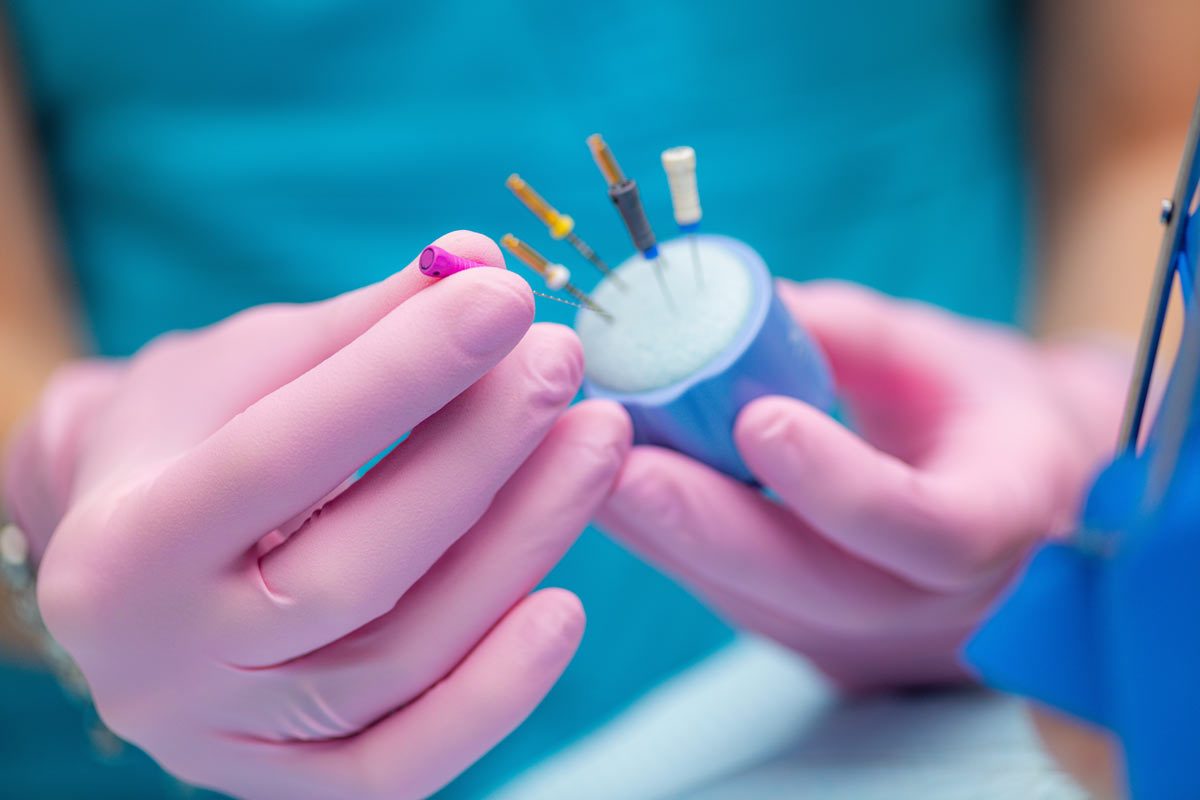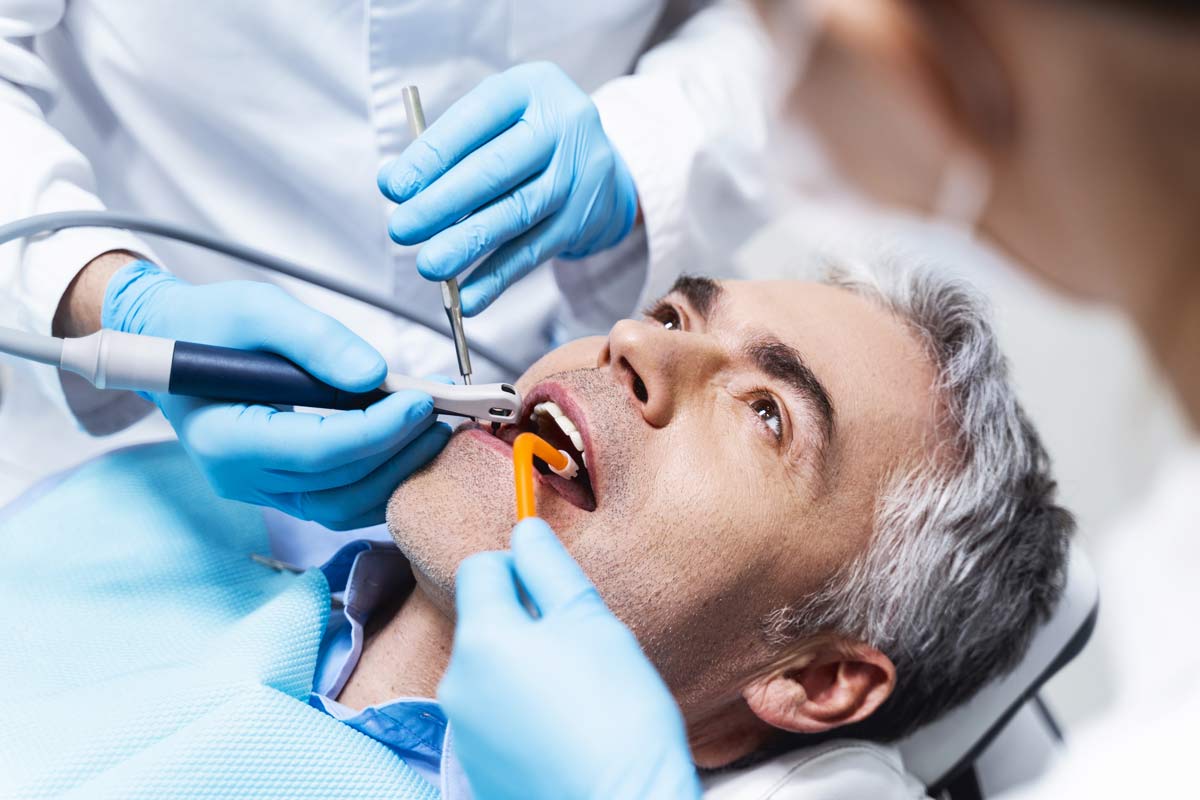Root canal therapy is a non-surgical technique to preserve teeth. However, endodontic surgery may occasionally be required in addition to or instead of root canal therapy. Apicoectomy, sometimes called root-end or apical surgery, is the most typical endodontic procedure. If, following root canal therapy, there is infection or inflammation in the bone at the root end, this operation is frequently necessary. The oral and maxillofacial surgeon will numb your tooth and the tissue around it during an apicoectomy so that you remain comfortable during the treatment.
What Exactly Is an Apicoectomy?
An apicoectomy is a microsurgical procedure that begins with a small incision in the soft tissue near the afflicted tooth. Any damaged or inflammatory tissue, as well as the apex (root tip), is removed. The end of the root canal is sealed with a small filling, and the incision is closed with sutures. The bone around the root tip recovers over a few months.
Are Endodontic Surgery and a Root Canal the Same Thing?
While a root canal is an endodontic procedure, it is not an endodontic surgery. A root canal is a non-surgical technique before surgery. A root canal procedure aims to save a patient’s natural tooth without additional treatment. However, surgery may be required occasionally.
An apicoectomy, also known as apical surgery, frequently solves the problem if surgery is necessary. This form of endodontic surgery, often known as “root end surgery,” involves removing a part of the root tip and closing the root canal.
If inflammation or infection has advanced to the root tip in the jawbone following a root canal procedure, patients may require apical surgery and perhaps a root canal retreatment. Surgery may seem frightening. But an apicoectomy may be the best option for preserving your natural tooth and preventing extraction.

How Painful Is Endodontic Surgery?
You won’t experience any discomfort during the surgery because of the local anesthetics. However, as your recovery proceeds, you may feel a little uncomfortable and potentially have a slight swelling. Fortunately, these adverse effects are temporary and easily managed at home, thanks to over-the-counter painkillers and cold compresses.
If you have discomfort or an infection that persists despite previous treatments, you could experience a sense of relief that was long overdue after the healing process is complete.
What Are Some Ways to Treat Endodontic Pain?
After endodontic surgery, you may feel soreness. However, many patients say they feel less pain after endodontic surgery than after having a root canal. After surgery, your endodontist can advise you to take painkillers, antibiotics, steroids, or other medications. Always pay attention to the instructions when using them. You should contact your endodontist immediately if the pain does not disappear after taking painkillers.
Are There Any Possible Issues After Treatment?
Although it is improbable, this treatment may result in the following problems:
- Injury to the Lower Teeth and Nerves: There is a slight chance of nerve damage during root canal surgery on the lower posterior teeth.
- Sinus and Upper Teeth Connection: Your upper teeth are close to your sinuses, and root canal therapy may cause communication between your mouth and the nearby sinus.
- Post-operative Infections: Infections following surgery can sometimes happen. This usually necessitates a visit to the doctor’s office and an examination.
What Is the Aftercare for Endodontic Surgery?
After endodontic surgery, you must adhere to specific guidelines for exercising, eating, drinking, and brushing. You should avoid physical activities like sports and exercise for a few days since recently treated teeth are more susceptible to injury. You should not use the damaged side of your mouth for chewing until the surgeon or dentist removes the sutures. During 24 hours, don’t smoke, and stay away from alcohol if you’re taking medication. After endodontic surgery, your teeth and gums could be sensitive. Your endodontist could suggest switching to a different mouthwash or temporarily changing your brushing and flossing routines. Follow your endodontist’s instructions precisely.
Surgeons at ORIS Dental in Richmond Hill, Ontario, are here to help you recover! Feel free to contact us if you have any inquiries or concerns.



